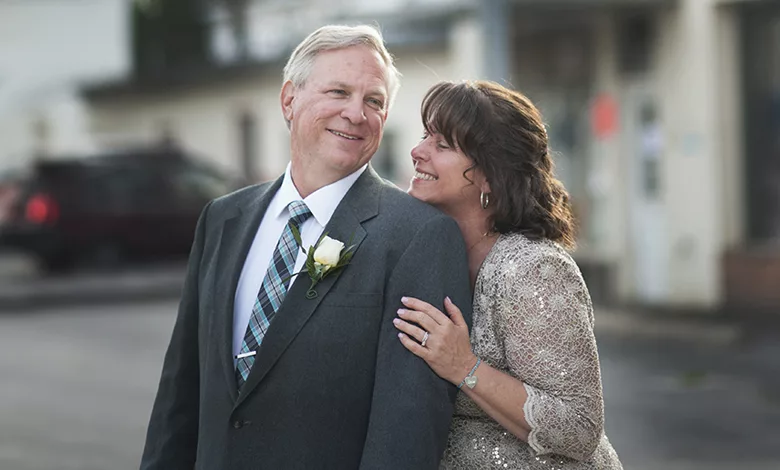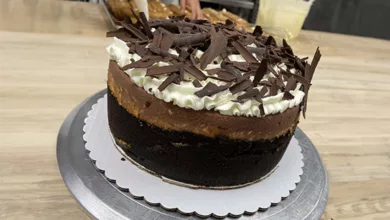
Second weddings are such a special time in your life—it’s a renewed chance for love, hope, faith, and family. You can keep the wedding small and intimate, or you can throw a blow-out celebration. The best part is that most formal rules can be thrown out the window, and you can do what feels right to you. Etiquette and tradition should take a back seat to your personal preferences and desires.
Certain details can be ditched the second time around, too. The goal of your party is purely to celebrate the two of you, your future together, and your new combined families. So, include what you want and set aside what doesn’t feel right to you. There are no right or wrong answers.
Here are traditions you don’t need to do the second time around—regardless of what your mom, daughter, or best friend may say—along with some alternative ideas.
1. A White Dress
Sure, you can wear one if you want, but there is no need or expectation to walk down the aisle in a traditional flowing lace and tulle ballgown with a cathedral-length veil.
Alternative: A gorgeous gown, sequined pantsuit, or cocktail dress. Any color—including white—is fair game. If you want to wear black or red, go for it. You should look like the main attraction, but it doesn’t need to be in the form of a formal wedding gown. Wear what you love and what makes you feel great.
2. A Bridal Party
There’s no need for bridesmaids or groomsmen like you may have opted for in your first wedding. You can include these special people in your life, but invite them as guests this time.
Alternative: Have your children or siblings stand by your side. They can choose their own special dress or pick a color and let them find a style that’s flattering to them in that color palette. Or you can wear a solid, and they can choose a gown in a floral in the same shade. Your pictures will look wonderfully cohesive if you put a little thought into the colors. Including your family in this special role will be meaningful to all of you.
3. A Gift Registry
A traditional gift registry is a way to provide couples with everything they need to start their first home together. Since you most likely have one—if not two—fully established residences, a wedding registry is unnecessary. But if you’d love to refresh your sheets and towels or need to restock a new kitchen, there’s no rule against it the second time around. This also enables your guests to buy what you want vs. what they think you’d like.
Alternative: Request no gifts. Some common phrases include, “We’re excited for your presence, not presents. No gifts, please.” Or “Your presence is truly enough; no gifts, please.” Another idea is to give the option for guests to donate to a charity that’s near and dear to your heart: “In lieu of gifts, please donate to [charity you’ve selected].”
4. A Formal Invite
While you still request “the honor of your guests’ presence” at your event, there’s no need for formality, titles, or boring cream cardstock.
Alternative: Ditch the “Mr. and Mrs.” along with other formal wording and instead let the wedding invite reflect both of your personalities. There are so many options now available to choose from that include bright colors, informal typefaces, photographs, illustrations, and more. Some great resources are Minted and Zazzle.
5. A Religious Ceremony
Every religion and situation is different when it comes to second weddings, so just be sure to do your research and consult whether you can hold yours in your place of worship.
Alternative: If a religious wedding ceremony is important to you, you can always include readings in your ceremony, whether it’s being held in your house of worship or not. There are even officiants who can include most parts of a religious ceremony so that it retains the feel and substance of one without being officially acknowledged by your house of worship.
6. Shower and Bachelor/Bachelorette Parties
These traditional pre-wedding festivities are big events the first time around but are typically not done thereafter. In theory, you already have everything you need to start your adult life.
Alternative: If a friend insists on hosting any of these events, keep the guest list small. Or invite your closest friends to a lunch or fun night out but insist on no gifts.
7. Large Wedding/Spending a Lot of Money
With the average wedding in the Dallas-Fort Worth area costing $37,120 in 2022, it’s easy to see how costs can quickly add up.
Alternative: Large weddings are certainly acceptable if that’s what you’re envisioning. But they are not necessary the second time around. Since typically half of your budget goes toward food and drink, the easiest way to keep costs down is by limiting your guest list. Small and intimate can be more meaningful. Include your closest friends and family members.





